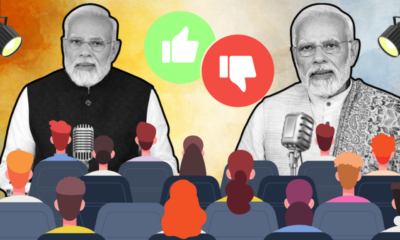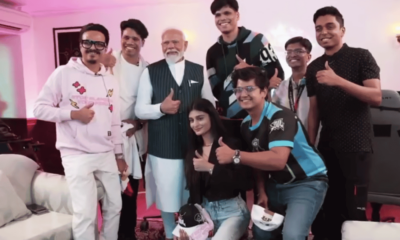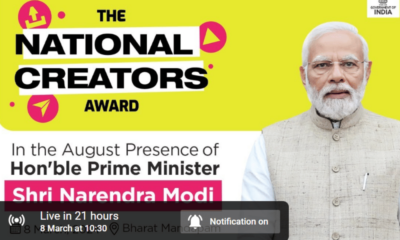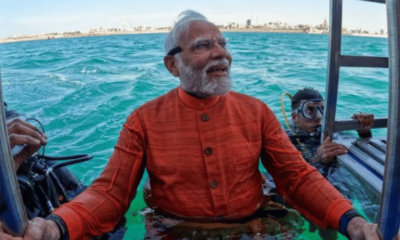Biz
Iconic Indian Industrialist Ratan Tata Passes Away at 86
Ratan Tata, iconic businessman and chairman emeritus of the Tata Group, has passed away at the age of 86 in Mumbai.
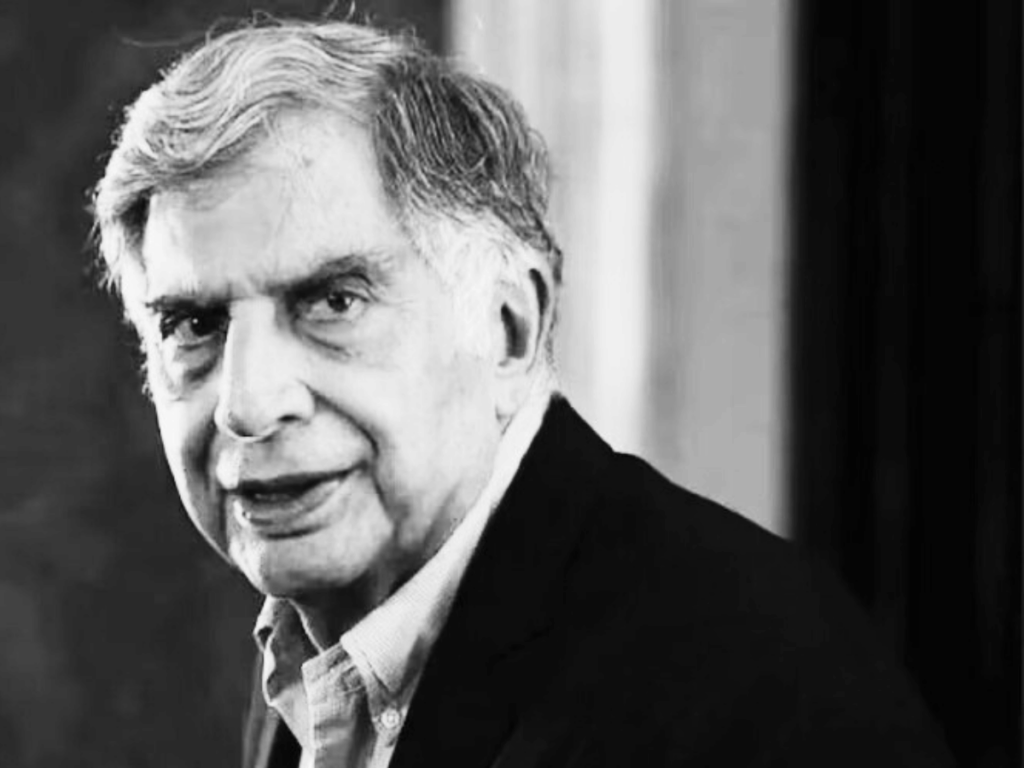
Ratan Naval Tata, the legendary Indian industrialist and former chairman of Tata Sons, has passed away at the age of 86. The news of his death has sent shockwaves through the business community and across India, marking the end of an era for one of the country’s most respected and influential figures.
He was admitted to Breach Candy Hospital due to age-related issues on October 7. Just days before his passing, on Monday, Mr. Tata had taken to social media to address speculation about his health, stating that he was merely undergoing routine medical investigations due to his age. However, his condition apparently deteriorated rapidly, and he was admitted to the south Mumbai hospital for intensive care.
N Chandrasekaran, the current Chairman of Tata Sons, confirmed the sad news in a late-night statement, expressing “a profound sense of loss” at the passing of “a truly uncommon leader.” The announcement has been met with an outpouring of grief and tributes from across the nation, with Prime Minister Narendra Modi among those expressing deep sorrow at Tata’s demise.
Current update: Ratan Tata’s mortal remains are currently at the NCPA lawns for public viewing. His final rites will then be carried out at Worli Crematorium.
Ratan Tata’s Life and Legacy: A Journey of Excellence and Compassion
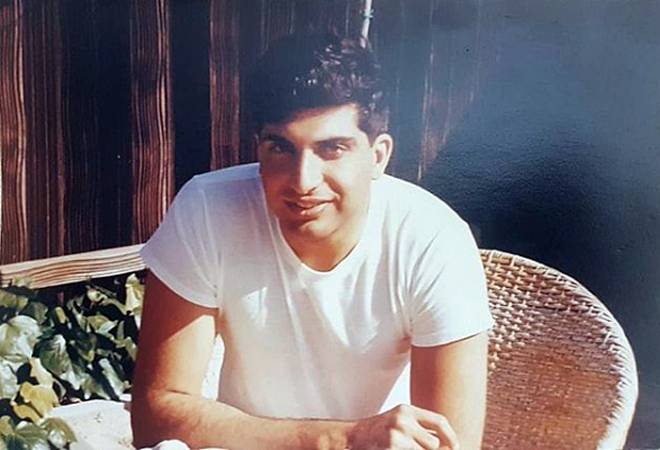
Ratan Naval Tata’s life story is one of remarkable achievement, unwavering integrity, and profound impact on Indian business and society. Born on December 28, 1937, in Bombay (now Mumbai), Tata’s early life was shaped by unique circumstances. Following his parents’ separation in 1948, he was raised by his grandmother, Navajbai Tata, a figure who would have a lasting influence on his values and outlook.
Education and Early Career:
Ratan Tata’s educational journey took him from the Cathedral and John Connon School in Mumbai to Cornell University in the United States, where he earned a degree in architecture. He later complemented this with advanced management training at Harvard Business School. This diverse educational background would prove invaluable in his future roles, blending creative thinking with business acumen.
In 1962, Ratan Tata joined the family business, starting his career at Tata Steel. His early years were spent gaining hands-on experience across various Tata Group companies, including Tata Motors (then known as TELCO). This period was crucial in developing his understanding of the diverse operations within the conglomerate.
Rise to Leadership and Transforming the Tata Group
Tata’s leadership potential became evident when he turned around the struggling National Radio & Electronics Company, increasing its market share and profitability. This success, among others, paved the way for his appointment as Chairman of Tata Sons in 1991, a position he would hold for over two decades.
Under Ratan Tata’s stewardship, the Tata Group underwent a remarkable transformation. He spearheaded several key initiatives. Tata led the group’s international growth, including the landmark acquisitions of Tetley Tea in 2000 and Anglo-Dutch steelmaker Corus in 2007. The acquisition of Jaguar Land Rover in 2008 was a bold move that put Tata Motors on the global map. Additionally, the development of the Tata Nano, aimed at providing affordable transportation to millions, showcased his commitment to innovation and social impact. Tata Consultancy Services (TCS) grew exponentially under his leadership, becoming one of India’s most valuable companies. The launch of Tata Teleservices in 1996 marked the group’s entry into the burgeoning telecommunications sector.
Ratan Tata’s commitment to social causes was evident throughout his career:
Tata was known for his modest lifestyle, integrity, and forward-thinking approach. He modernized the group’s operations, professionalizing management and fostering a culture of innovation. His leadership style emphasized ethical business practices, long-term thinking, and a balance between profit and social responsibility.
- Tata Trusts: He ensured that a significant portion of Tata Sons’ profits were channeled into philanthropic trusts, funding initiatives in education, healthcare, and rural development.
- Disaster Relief: Under his leadership, the Tata Group was at the forefront of relief efforts during various natural disasters in India.
- Education: He established several educational institutions and scholarships, including the Tata Institute of Fundamental Research.
- Animal Welfare: Tata was known for his love of animals, particularly dogs, and supported various animal welfare initiatives.
After stepping down as Chairman in 2012, Tata remained active as Chairman Emeritus of Tata Sons and continued his philanthropic work. He also became a prominent angel investor, supporting numerous startups and fostering entrepreneurship in India.
Awards and Recognition:
Ratan Tata’s contributions were widely recognized. He received the Padma Vibhushan (2008) and Padma Bhushan (2000), two of India’s highest civilian honors. Internationally, he was awarded the Honorary Knight Commander of the Order of the British Empire (KBE) in 2009.
As of Thursday, the CM Eknath Shinde-led cabinet in Maharashtra has urged the government to confer the “Bharat Ratna” on the late industrialist.
Bidding Adieu to a True Leader Ratan Tata
As we bid farewell to this extraordinary leader, we remember not just the businessman who transformed an Indian company into a global powerhouse, but also the humanitarian who believed in using his success to uplift others. Ratan Tata’s legacy as a visionary entrepreneur and compassionate philanthropist will continue to inspire future generations of leaders in India and beyond.
His passing is a reminder of the power of ethical leadership and the enduring impact of using one’s position to create positive change in society. Ratan Tata was not just a successful businessman; he was a true influencer who showed that profit and purpose could go hand in hand. As India mourns the loss of one of its greatest sons, we celebrate a life well-lived and a legacy that will continue to shape the nation for years to come.



